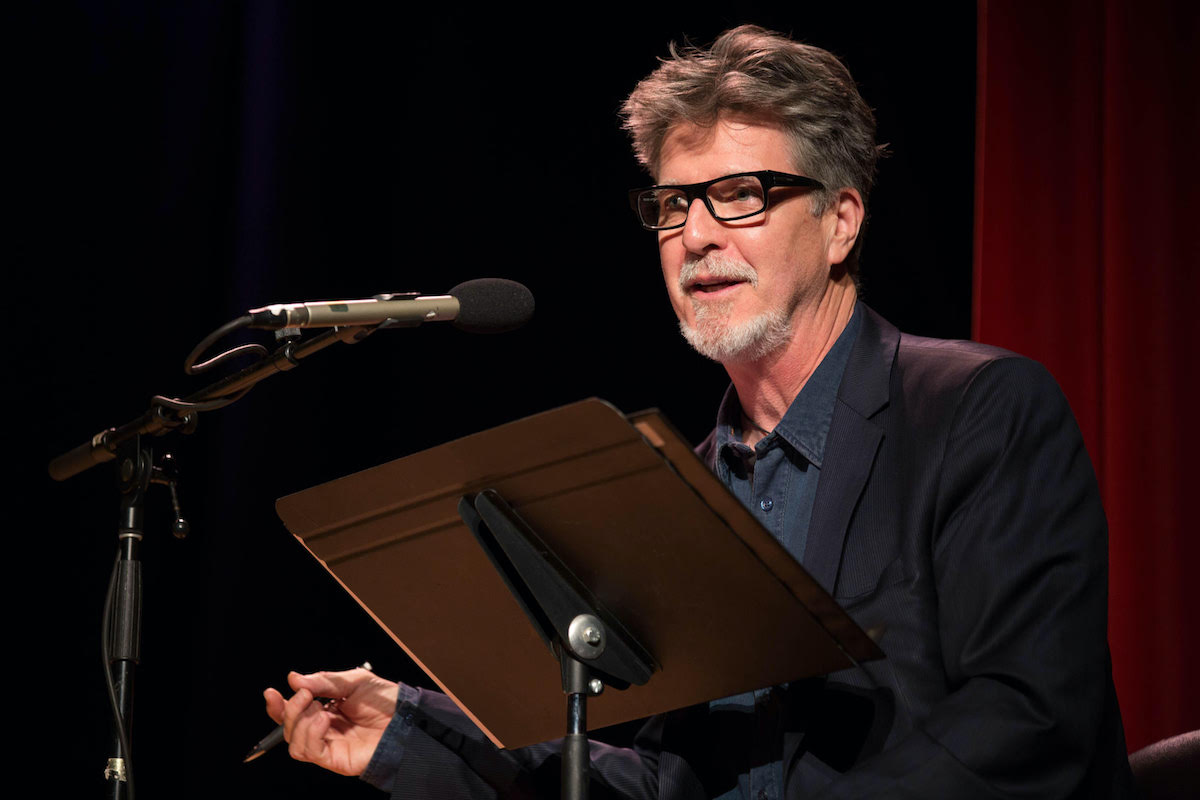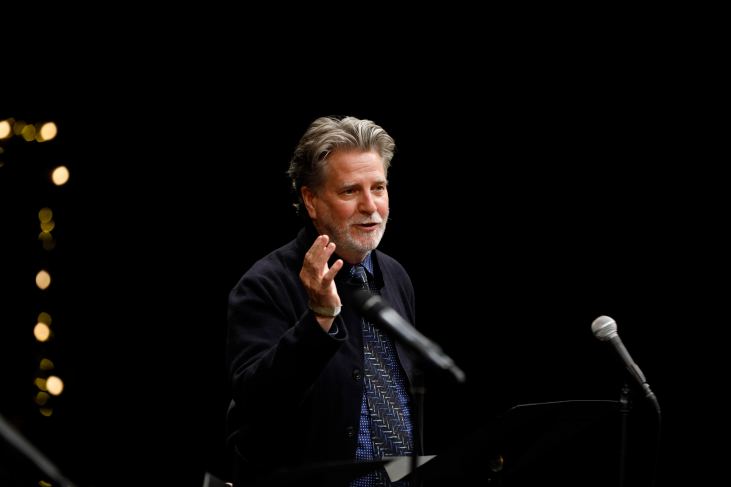Inside the Ojai Playwrights Conference
‘Nurturing New Plays That Change the World’ Is 25-Year-Old Conference’s Credo

“If you want to change the world, you have to have writers who are writing about the world,” says Robert Egan, the artistic director/producer of the Ojai Playwrights Conference (OPC). The conference, which has been supporting the development of new dramatic work for 25 years, features plays from a diverse group of playwrights who have the ability to articulate glitches in society and offer points of view with a potential to unravel our social knots. “We want writers who care and dare to talk about the relationships between individuals in this complex, disturbing thing we call social reality,” Egan says. This is Egan’s final year at the helm of the Ojai Playwrights Conference. In his 22 years as artistic director, the festival has grown to be one of the premier new play development programs in the country.
The conference is a two-week process that involves a week of play development for the writers, who read and discuss each other’s work in an environment of textual exploration and consideration. Playwright Bill Cain, whose new work, God’s Spies, will be presented at the OPC this year, calls the conference an extraordinary experience. “It definitely supports the improvement of plays, but the thing OPC does far, far better than any other festival is it supports the creation of playwrights. Because the playwrights talk to one another, listen to one another, give one another tremendous support. It breaks the isolation of playwriting … and that’s different from any other festival I know.”
In the second week, the actors arrive and the staged reading of each play takes shape, to be performed as the culmination of the festival (Aug. 11-14). Plays are followed by conversations between audience and artists that highlight impactful scenes and moments.

This year’s plays cover a diverse range of topics: Dog Day Afternoon, by Stephen Adly Guirgis, is a stage adaptation of the classic film; Suburban Black Girl, by Zakiya Young, is about the awakening militancy of one woman after the murder of George Floyd; Avaaz, by Michael Shayan, centers around the Iranian New Year celebration of Nowruz and considers assimilation into American culture; The Janeiad, by Anna Ziegler, is a modern take on Penelope’s long wait for her husband’s return in The Odyssey; A Home What Howls (or a House that was Ravine), by Matthew Paul Olmos, is about gentrification and a Latinx family displaced; The Sensational Sea Mink-ettes, by Vivian J.O. Barnes, is about a dance team preparing for Homecoming; To Red Tendons, by Peter Kim George, is about racial, cultural, and ethnic dynamics in Los Angeles; Running While Black, by Jahna Ferron-Smith, is about a Black woman attempting to make it as an entrepreneur in New York; and God’s Spies, by Bill Cain, is about Shakespeare in quarantine during the 1603 plague. He’s housed with a lawyer and a prostitute, and the play asks the question: who are the real “essential” workers?
“Shakespeare wrote King Lear in quarantine,” explains Cain. “He gets locked up in my version of it with a couple of very common people, and the experience with them opens him to the reality that becomes the play King Lear.”
Beyond the play readings, the conference also offers programs for young theater makers, bringing the opportunity to change the world with intrepid theater to the next generation. These events promise to make Egan’s last year memorable, and to cement his legacy of change through daring and responsible theater. “I think a lot of people want to go to the theater and be reassured,” says Egan. “The problem is when you go to the theater to be reassured or forget, nothing changes; nothing gets better.”
Be a part of the conversations happening at this year’s Ojai Playwrights Conference: See a play and join the talk-back after the show — art can only change the world when it’s released into the populace for reflection and deliberation.
See ojaiplays.org.
Support the Santa Barbara Independent through a long-term or a single contribution.




You must be logged in to post a comment.